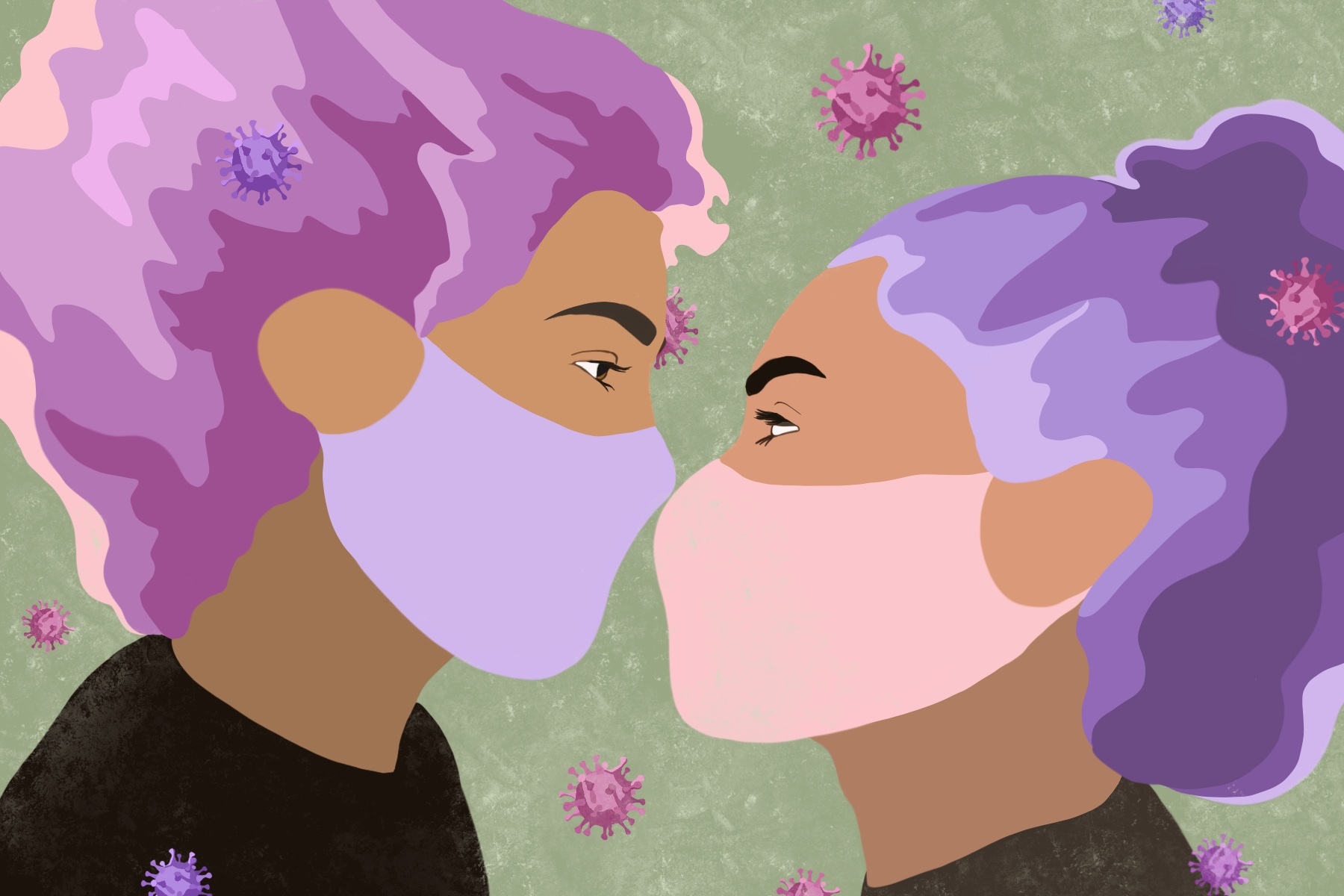As universities start to open up for students to move in, it’s clear that many aspects of campus life will change. I’ve found myself questioning so many of the practices of college students and whether they will be sustainable in the age of COVID-19 (mostly no). But perhaps the biggest question I have is: What will hookup culture look like on college campuses?
What Exactly is Hookup Culture?
Before COVID-19 was the center of many college students’ conversations, another topic reigned supreme: hookup culture.
In the past decade or so, college campuses have seen a decline in romantic or monogamous relationships. Instead, many students have started engaging in the practice of “hooking up.” The most recent statistic, from a 2013 study on hookup culture, states that between 60% and 80% of North American college students had hooked up with at least one person in some capacity. While “hooking up” can be defined as anything from making out to full-blown sex, in almost all instances it is seen as a casual sexual encounter, no (or very few) strings attached.
What Experts Are Recommending for COVID Hookups
There are many risks associated with physically hooking up in terms of COVID-19. Obviously, most components of hooking up require partners to be within six feet of each other, thus violating social distancing. Not to mention the virus can spread through saliva, which is often exchanged in the act of hooking up. However, there are many resources and suggestions for those who choose to have sexual intercourse in spite of COVID-19.
Perhaps the most commonly discussed resource is the New York City Department of Health’s extensive set of tips titled “Safer Sex and COVID-19″ that many recommend abiding by. The first section of the guide details the ways in which COVID-19 can spread during sexual activity and how much of the virus’s transmission through sex is still unknown.
The guide then discusses the safest ways to have sex. First and foremost, it advises people to “have sex only with people close to you,” whether that be through self-love or having sex with a roommate. It also proposes sticking to one partner who you trust and know is being careful. As for the actual act of sex, it urges that those having sex should avoid kissing and wear some sort of mouth covering.
“Heavy breathing and panting can spread the virus further, and if you or your partner have COVID-19 and don’t know it, a mask can help stop that spread,” it reads.
The NYC Health Guide also has information regarding the risk of sex that has been around long before COVID-19: sexually transmitted diseases and unintended pregnancies. Altogether, it’s a great resource to consult when making decisions about sexual activity during the pandemic.
What Are Universities Recommending?
Many universities are worried –– rightfully so –– about the possible transmission of the virus through hooking up. Many have published their own set of guidelines, often taking inspiration and information from resources such as the ones previously detailed by the NYC Health.
In fact, my university required us to take a COVID-19 crash course similar to Alcohol.edu, the alcohol prevention program that most college students are required to take before enrollment. The course featured a section on “Navigating Intimate Relationships” during COVID-19. Sexual intercourse is strongly discouraged, especially between people not in an exclusive relationship. Instead, they suggest socially distant dates, masturbation, sexting, sexy video chatting and “good old-fashioned phone sex” (yes you heard that right).
Beginning of A Good Thing?
I’ll admit it, when I first started thinking about what hookup culture would look like on college campuses, I was extremely naïve. Worried about contracting COVID-19 myself, I thought others would feel the same and that as a result, hookup culture would become less frequent across the board. However, upon further reflection, I now realize that it’s very unlikely that students will follow all or any of the guidelines suggested by NYC Health, universities or experts in general. The circumstances leading up to the campus closures of schools like UNC-Chapel Hill and Notre Dame have shown that it’s likely that many students won’t stay away from each other as much as I had originally anticipated. Not to mention, after being quarantined for nearly six months, many college students are likely to want some sort of physical connection or sexual action.
That being said, I think that things could –– and hopefully will –– change. This could be a period of reformation. One common criticism with hookup culture is that it leads to very superficial relationships and enables/normalizes a lack of accountability for sexual harassment. It’s possible that learning to respect boundaries regarding COVID-19, which many of us have become well versed in, may transfer well to respecting one’s sexual boundaries. Such communication would improve hookup culture immensely, as poor communication is often one of its many unfavorable aspects.
Not to mention, those who choose to abide by COVID-safe hookup guidelines may find themselves benefitting greatly. Without an emphasis on physical intimacy, they will have a chance to focus on emotional intimacy and form genuine connections with others. Perhaps relationships will become more popular again. Who’s really to say. But as a hopeless romantic, I can only hope. I just arrived on campus, and I can’t wait to see how it all pans out, both at my campus and everyone else’s.

















